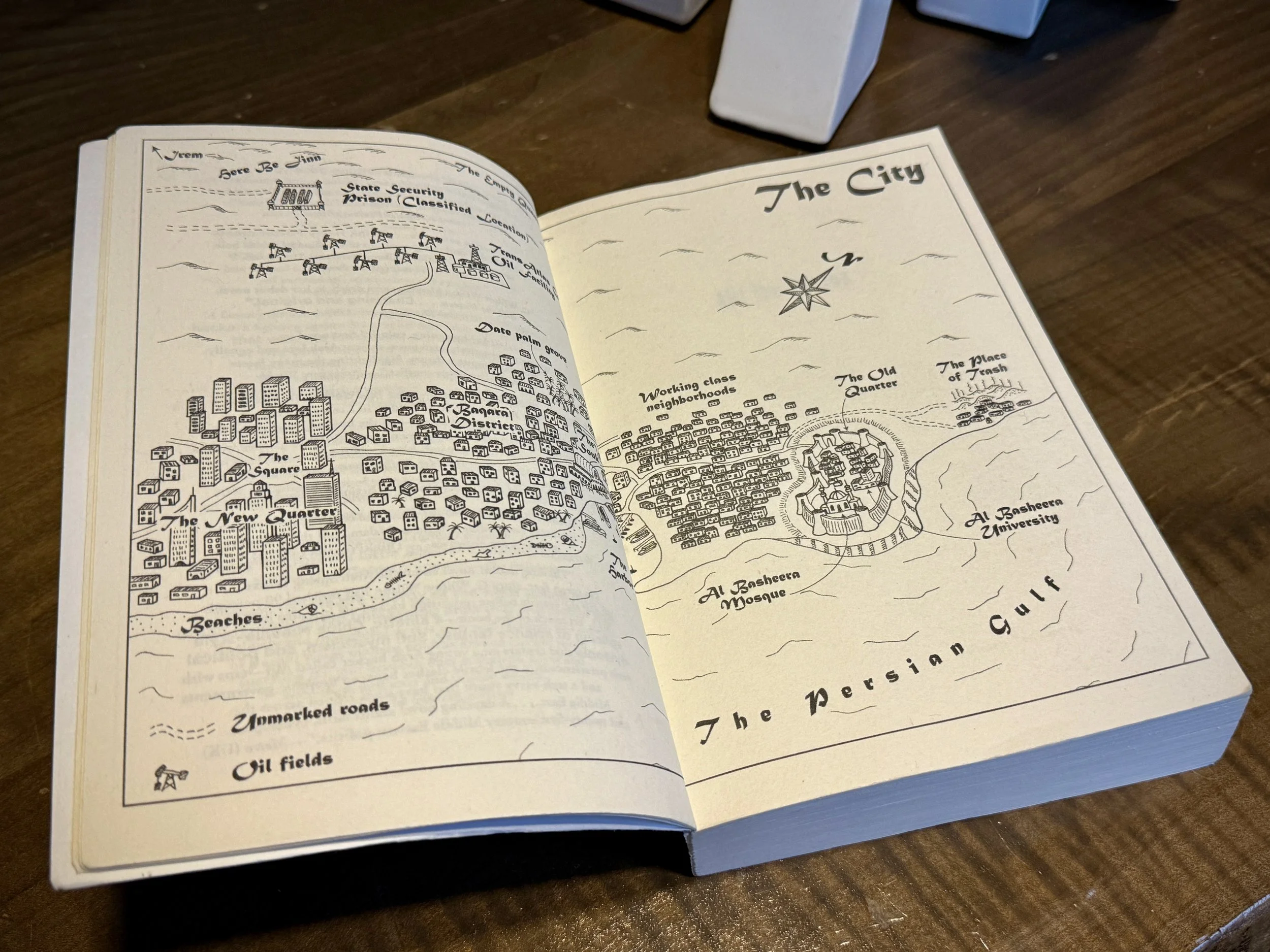AAAS 2024: Presented paper "Oriental, Inscrutable, Unknowable: Generative AIs, Jinns and G. Willow Wilson's *Alif the Unseen*"
In late April, I had the pleasure of presenting my paper "Oriental, Inscrutable, Unknowable: Generative AIs, Jinns and G. Willow Wilson's Alif the Unseen" at the Association for Asian American Studies conference. This was part of a panel on “AI and Passing,” which included presentations by Klara Loc-Ling Boger and Chang-Hee Kim.
Below is an abstract of the talk; please feel free to contact me if you’d like to connect and discuss these topics further.
Abstract
In G. Willow Wilson's novel Alif the Unseen, the title character, an Arab-Indian computer hacker, writes a powerful surveillance program but he cannot explain how it works. It is nonetheless terribly effective. His friend, appraising the concept, says, "One might even say that with this botnet, you have endowed your little desktop machine with intuition" (47). This reference to human-like intelligence makes Wilson's 2012 novel resonate with our present historical moment. Like Alif's program, large language models (LLMs) like ChatGPT operate in ways that are largely unknowable: their inner workings are often proprietary and the ways their neural nets arrive at conclusions are largely inexplicable. Both fictional and real-life programs are characterized by their inscrutability and their inescapably Asian origins, whether through South Asian descent in the case of Alif himself or through Taiwan-based chip production in the case of ChatGPT.
This paper will argue that the setting and technologies depicted in Wilson's novel put aspects of Asian American studies, specifically orientalist and techno orientalist critique, and generative Artificial Intelligence into uneasy relation with one another. The detail and nuance with which Wilson depicts the city and its society contrasts with the locale's absent name (it is known only as "The City"), an engagement with classic orientalism's tendency to flatten the East into a single, generic, and out-of-history location. The depictions of the jinn and their stories, seemingly lacking in the morals expected by human characters, present an ultimate Other, one that cannot be understood, and at times can barely be perceived, by human witnesses, supplanting the role of the stereotypical Oriental as described by Said. Through the novel's play with such tropes, it foreshadows today's encounters with artificial others that exist at the edges of comprehension and at the edges of the human.
